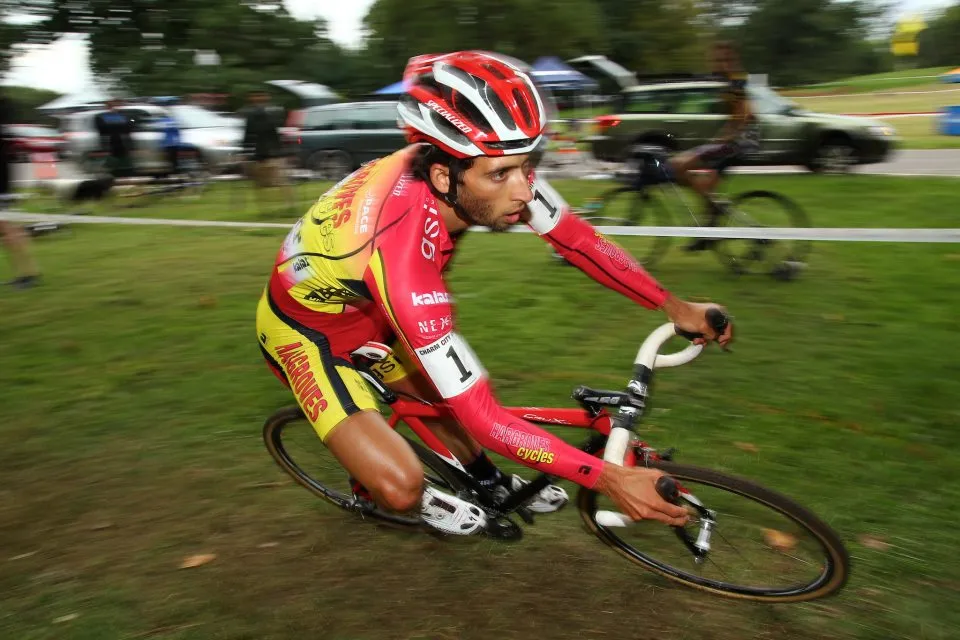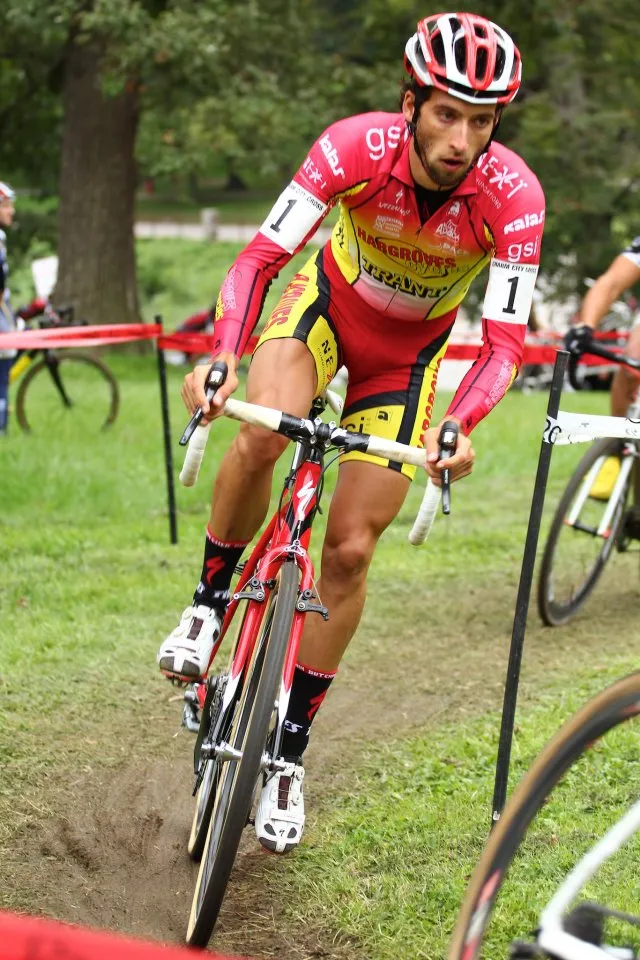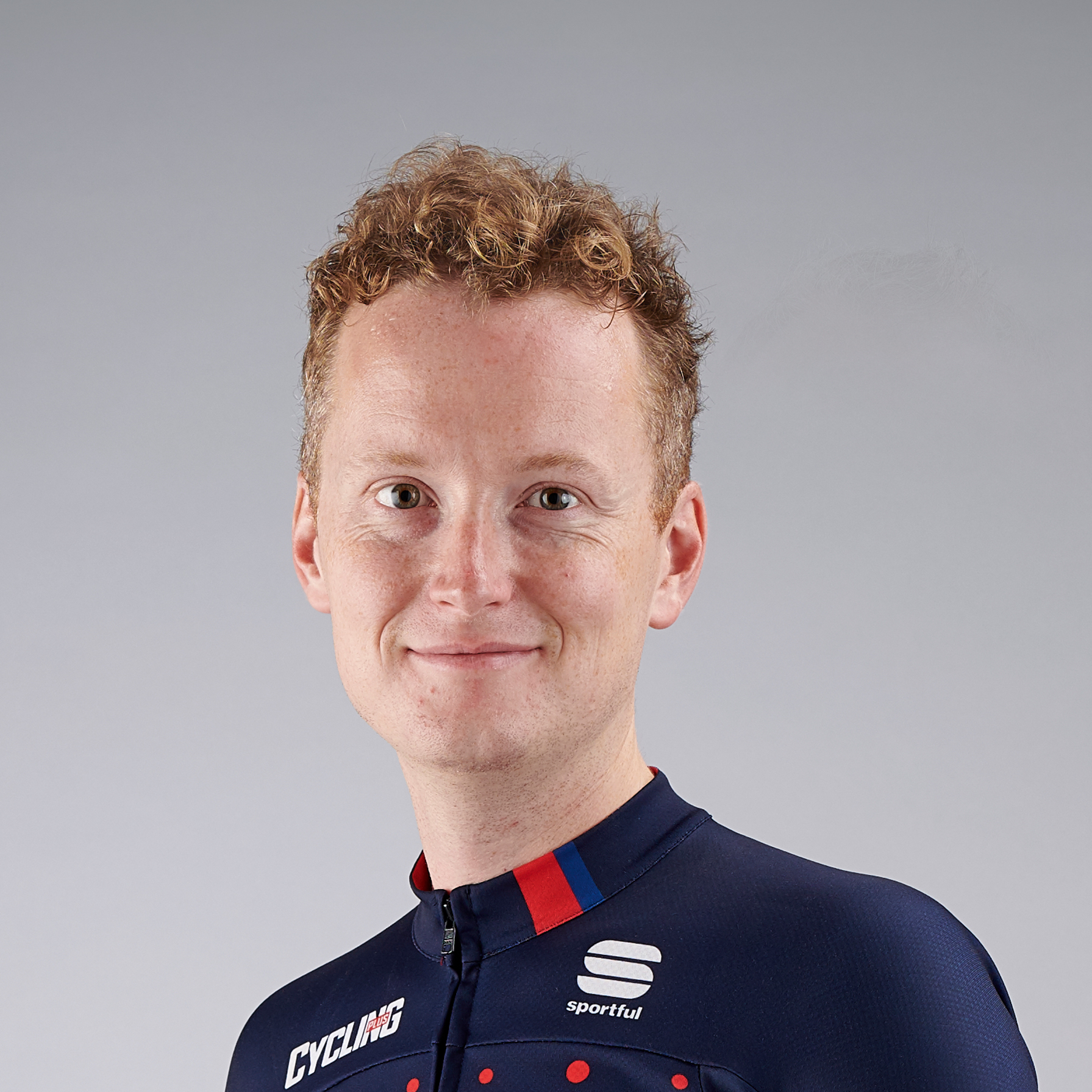Pro cyclo-cross racer Ian Field inhabits a world that would seem alien to most. Hailing from Ashford, Kent, he upped sticks to Belgium, the Mecca of world ‘cross racing, at the start of last season to live in a country that oozes passion for the sport. It dominates newspaper and television reports there in the way football does in the UK, with fans worshipping their favourite riders like they do on the terraces.
The 25-year-old is now the highest placed Brit in the world rankings (47 at time of writing) and with the support of main sponsors Hargroves Cycles – a company with a rich ‘cross heritage (owner Peter Hargroves used prize money to start the business) – he’s looking to make his mark. BikeRadar sat down with him to discuss his earliest ‘cross experiences, how the sport differs in the UK, Belgium and the US, why fans are so fanatical on the Continent and what a newcomer needs to succeed in ‘cross racing.
BikeRadar: When and how did you get into cyclo-cross?
Ian Field: I started out through school. I already enjoyed riding my mountain bike and when I was 12, I went along to a school trial for a place at the British schools [cyclo-cross] championships, as they needed another person to fill a team. I actually beat a lad who did it all the time and ended up second at the championships in my first ever race. I thought: ‘Okay, I reckon I might be into this’.
Compared to other forms of bike racing, what do you enjoy most about cyclo-cross?
I was on the British Cycling academy for mountain biking and was national under-23 champion in 2006 and did all the World Cup events, so I’ve a history of that. For me, mountain biking is [now] a bit slow and boring. In ‘cross it’s all-out effort and normally the strongest on the day, and technically best, wins, which I enjoy. It’s basically all aspects of cycling in one hour. Compared to road racing, it shares power and strength but in ‘cross you also need to be able to ride a bike, which suits me.
What prompted the move to Belgium?
I started going there for long weekends two years ago and then last season I was there full-time. It’s the pinnacle of ‘cross racing in the whole world. I could turn up to any national event and pretty much have a podium place nailed on. I’d reached a level in the UK where if I needed to make the next step, I’d have to surround myself with the best riders and the biggest races, so that’s what I did.
Why do you think it’s more popular over there?
It’s imbedded into their culture. It’s the biggest winter sport in the country by a mile and is on live television every weekend. All the top guys are household names, superstars. In this country every little kid wants to be a football player. Over there, if you’re watching every Sunday afternoon and see Sven Nys on television and you ride a bike, he’s the guy you want to be. It’s national news. Race results are in every paper the next day and it’s first up in the sports bulletin in the evening. It’s just another level.
What’s life like living there as a pro rider?
Field answered this question with a tale about a man who approached his housemate, fellow ‘cross pro Helen Wyman, and offered his services as her bike cleaner for the season, illustrating the devotion fans have to the sport.
They (the fans) aren’t slow in saying you were rubbish, either. It’s very much an elitist sport and they can be harsh. They’ll ask me how I did and I’ll say, ‘I got 15th in a really important race’, and they’ll be like (shrugging shoulders), ‘15th? Is that it?! But Sven Nys won didn’t he?’, ‘Yes he did, again. I was happy with 15th!' You can see why people either get good or give up!
It’s like football in this country, you get the big fat bloke down the pub who can’t kick a ball to save his life but can tell the best player in the world what he’s doing wrong. At a race in Belgium, this big guy came up to me and said, ‘You didn’t do those steps very well’, and I was thinking, ‘Give me a break – you couldn’t even walk up them!’ But they do know what they’re talking about, even with things like tyre pressures. They’ll come round, give it a squeeze and shake their head. I’ll be thinking, ‘What have I done now?’ But it’s cool.
What are the differences between ‘cross racing in the US and in Europe, particularly in Belgium?
It’s different in America and is very much a niche market. I’ve only ridden on the east coast but we travelled through seven different states. It’s a middle class sport, which was a little strange as it’s a working class sport in the UK and Belgium. But where it’s popular, they’re fanatical and really know their stuff. Americans can get pretty excited about stuff, and they get excited about all things cyclo-cross.
The people who are involved are really, really passionate, like they are in Europe. In Europe, you find a lot of people involved in the sport are trying to make money out of it, just because there's a lot of it about. In the US, they do it because they love it. They do get big crowds, just not as big as Europe. There’s only one race a year, the national championships, where spectators have to pay to watch. We raced out there and there must have been 5,000 spectators.
What is the state of cyclo-cross racing in the UK?
The races are definitely getting bigger. Since I started doing the National Trophys things are getting more professional and more professional-looking. Even when you’re talking about the barriers and the sponsorship on show, it’s improving. And I think it'll only continue to do so, especially with the European championships in the UK next year. Things are definitely moving forward but some races are more popular than others. Bradford is a popular one, with a massive crowd last year by British standards.
What could be done to improve its popularity?
Hopefully with more successful British riders coming through, it’ll encourage more people to try it out. Last season I started to get more coverage and more interest in what I was doing. It’s the fastest growing cycling discipline, so being at the fore of moving that sport forward in the UK is pretty cool.
Are you planning to race in the UK this year?
Just the National Championships. I keep getting it wrong on the day so this season is built around doing well in them. I’ve never won them and it really hurt when I didn’t last year. Deep down I knew I should have won but I was ill during the week leading up to it and I thought I was over it. I went out the traps like a bat out of hell and suddenly realised I didn’t feel too good!
Anyone looking to get into cyclo-cross might think the bikes look a lot like you’d see on the road. But what are the main differences?
Basically, it’s in the tyres, gears and brakes. The brakes are cantilever style and are more powerful that normal road bike brakes. They have lower gearing, typically with a 39/46T chainring but this can be lowered to 44T depending on conditions. Cassettes are normally 11/25-27T and tyre widths fatter than on the road, up to 32mm.
Which cycling discipline prepares you best for ‘cross and why?
Road. It gives you that deep-down strength and endurance that you build up through the off-season in summer. And it’s fast and so is ‘cross. But that doesn’t mean I don’t train off-road.
How do race tactics differ to road racing?
It’s not so much a team sport. You can get an advantage from sitting on a fast race but there aren’t too many team tactics that can be played. I’ve come across a few in America because some of the teams have got so many top quality riders. They have guys on the front taking it in turns to stretch the race. In most 'cross races there's a long road straight, where drafting can be a distinct advantage.
What’s the hardest aspect of a race?
Peter Hargroves: Between the start and finish line!
Field: It’s not like a road race where you roll out and the first 10 miles are casual. It's a full-on sprint off the line. I had SRMs on my bike a couple of seasons ago and I was hitting 1,300 watts off the start line, 800 watts every sand section, and it’s that full-on for the hour.
Fitness-wise, what strengths do typical ‘cross riders need?
You need to be a good all-round bike rider. You need the power and strength in your legs but you also need to be fit enough so that when you have to get off and run, you’re not a total mess at the end of it. Conditions can be muddy, they can be sandy, so you need to be a good bike handler, which is where off-road training helps.
What advice would you give to a ‘cross newcomer, in regard to training for and entering their first race?
Enjoy it. I think a lot of people can underestimate it because it's only an hour. Maybe they do mountain bike racing where they race for up to two hours, or road where it’s typically three hours in the UK. I think a lot of people don’t appreciate how hard it is, and I think a lot of road guys who race road don’t race ‘cross because they know how hard it is. You get the odd top roadie having a go, then realising quickly how hard it is and thinking better of it. So my advice is definitely don’t underestimate it and don’t ignore riding off-road as part of your training. It’s much harder than it looks.


